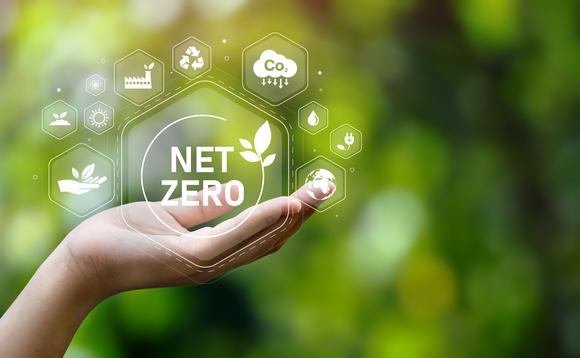Econocom’s CFO Ben Wylie and Project Manager for UK, IRL & North America, Samantha Bailey sat down with CRN to lift the lid on its carbon neutral plan of action.
The premise of Econocom was built around the circular IT economy and selling second hand computers, something which was unprecedented at the time of its founding around 1974.
That's according to the group's project manager for the UK, IRL & North America, Samantha Bailey, who spoke with CRN alongside Econocom's CFO and country manager, Ben Wylie to chat about environmental sustainability.
The discussion began with an outline of what the reseller is doing internally to reduce its carbon footprint, which includes installing LED lights that use less energy; transforming its car fleet to 100 per cent e-vehicles; and introducing motion sensors in office buildings to reduce energy waste.
Bailey added one thing Econocom is "most proud of" is the way it has started helping customers recognise their environmental impact.
Econocom's ecocarbon platform
The group does this through its ecocarbon platform, which takes a deep dive into a company's carbon footprint.
"There are three main pillars to the ecocarbon platform which are Measure, Reduce and Offset," Bailey explained.
"We've got a team of dedicated employees in France who help to measure the company's current carbon footprint.
"We've got quite a comprehensive database of questions, a list of assets that they need to record and the team evaluates that and looks at the current carbon footprint.
"They then present that back to the customer and recommend ways they can reduce this carbon footprint with things like switching to alternative assets that use less energy, extending the life of those assets, or reducing assets they have.
"They will work with the client on an action plan and try to implement those KPIs. But they also then look at offsetting the carbon footprint.
"You can't become completely net neutral by just reducing that so they need to look at offsetting as well."
She added this is something Econocom is undertaking for itself currently, however it is only in the first phase of data collection.
A cross-channel approach: Working with sustainable partners
Econocom also recognises the importance of working alongside other companies that take sustainability into consideration, with Wylie stating this is "absolutely" something the group takes on board.
"One of the elements that's really important for us is the end of life offering that we have through our brokerage channels, and so making sure that those are sustainable and have the right CSR credentials," he said.
"So obviously we do due diligence on the partners that we work with."
Bailey highlighted some of Econocom's own achievements in green credentials.
"One thing we're doing in France is dedicating our services entity to SBTI (Science Based Targets initiative) which looks at reducing greenhouse gases, and therefore helping future-proof our business," she said.
"And then it also should put us on a carbon trajectory in line with the Paris agreement but also across a lot of the other countries.
"We have also been awarded the EcoVadis silver medal, which sets us in the top ten per cent of companies that have been assessed by EcoVadis within our sector. We're hoping to in the next couple years or less, maybe try to achieve our gold medal status."
Econocom's message to channel
To sound off the discussion and leave the channel with a final message around the growing importance of sustainability, Bailey emphasised that companies of all sizes can play their part.
"The key thing for me is trying to help businesses remember that they don't necessarily have to act big or implement costly changes to make an impact," Bailey said.
"I think one of the key things people need to start remembering is that we can help just by extending the life cycle of the assets we're using.
"For example, big corporations or members of FTSE 100 may need the latest digital technology but then, they can then remarket those assets for SMEs, who maybe don't need as recent tech.
"And then at the end of their lifecycle, those corporations can then go even further, and refurbish them and donate them to charities or schools that probably don't need the same level of digital technology that these big corporations may require.
"So I think it's starting small and growing from there. And you can still make just as big an impact from doing those, making those small changes, and changing the mindset around the use of assets."
Original publication from CRN
